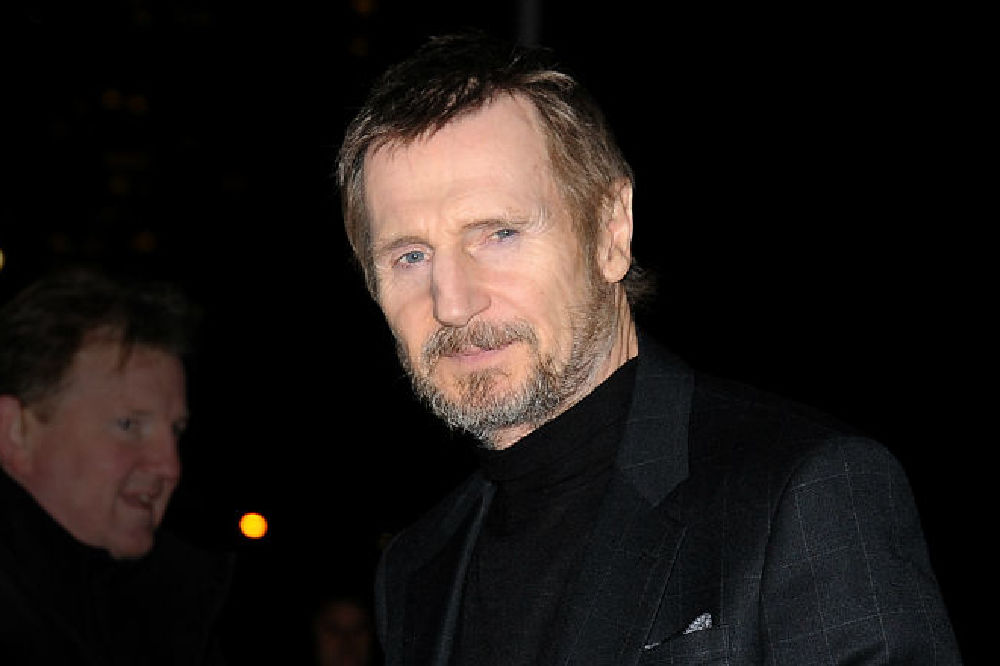It's always going to be painful to read when a beloved screen star gets accused of some misdeed, but it's somehow worse to hear when they themselves confess something horrible. Liam Neeson has made headlines this week after telling a journalist that he once sought deadly revenge against the black community, and while it's clear he no longer holds that attitude, we still don't know how to feel about it.

Liam Neeson outside The Late Show / Photo Credit: NYKC/Famous
There was no sugar-coating this admission. Talking about his new film Cold Pursuit in an interview, he revealed that he as much as anyone understands what drives people to vengeance. When a woman close to him was raped, he was ready to kill an innocent man.
"My immediate reaction was I asked, did she know who it was? No. What colour were they? She said it was a black person", he told The Independent. "I've gone up and down areas with a cosh hoping I'd be approached by somebody. I'm ashamed to say that. And I did it for maybe a week hoping some black b*****d would come out of a pub and have a go at me about something, y'know? So that I could kill him."
"It was horrible, horrible when I think back that I did that. And I've never admitted that", he continued. "It's awful. But I did learn a lesson from it when I eventually thought "What the f**k are you doing?" And I come from a society - I grew up in Northern Ireland in the Troubles... I had acquaintances who were very caught up in the Troubles and I understand that need for revenge. But it just leads to more revenge and more killing."
Now let's break this puzzle down into uncomfortable pieces. As shocking as this sounds, it is actually normal to want retribution on behalf of our loved ones, no matter how violent. Most people might be able to relate to Neeson's thoughts and behaviour in as much as they have also felt that kind of anger, but what most us (hopefully) can't relate to is his desire to take it out on an innocent person.
More to the point, it's unclear what motivated him to blame black people for this horrific act. Why was his immediate thought to ask what colour skin the perpetrator had? It's understandable that he might have certain prejudices growing up in the Troubles, but why specifically against people of colour?
We have to acknowledge that he sounded genuinely sorry about his behaviour but we only wish he had been a little clearer on whether he was ashamed that he wanted to kill someone, or whether he was ashamed of racial profiling an entire community since he fails to address the prejudice of his behaviour directly.
Would it have been any better if he'd not used the term "black b*****d"? Would it have been any better if he'd at least apologised for his language? We're not so sure. We like to think we understand the context enough to gauge that he no longer thinks like that, but we can't help but think the race issue was an unnecessary caveat to this story.
On the face of it, it's quite brave for Liam Neeson to admit that he hasn't always been a nice person. He must have known that he was risking some serious backlash but decided to be candid anyway. After all, nobody's perfect. We put our heroes on pedestals and paint them as flawless human beings, but the truth is we've all done things we're not proud of. We allow our thoughts and behaviour to be dictated by our emotions rather than our rationality.
And while a part of us can understand why he was so violently motivated after hearing about his friend's rape (after all, we want more men to show anger over abuses against women), that is a completely separate issue to using it as an excuse for hate crime.
A lot of people will be quick to defend Neeson for his honesty and his contrition, but the truth is we cannot be so quick to dismiss this conversation while black people are still being routinely targeted and killed for nothing more than a stereotype.
We're not so interested in what motivated Neeson's past aggression, but we're certainly all ears for his story on why his first question to a rape victim was to do with race, and how he would go on to tackle his prejudices.
Tagged in Liam Neeson

